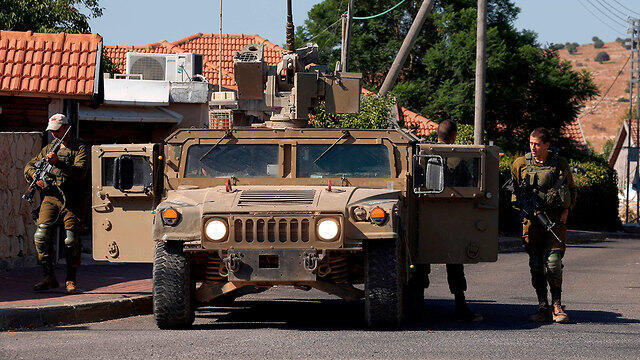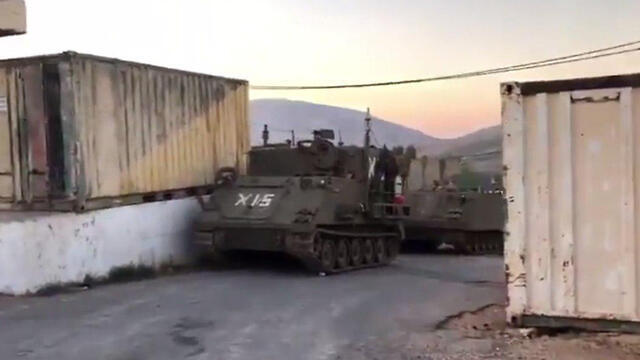Getting your Trinity Audio player ready...
IDF Chief of Staff Aviv Kochavi on Sunday officially reprimanded two senior officers from the Artillery Corps over an incident last month that saw the Iranian-backed Hezbollah organization fire three anti-tank missiles at IDF forces on the Lebanese border.
and Twitter
The missile strike came in response to an August attack by the Israel Air Force on several targets near Damascus. The strike killed three Hezbollah operatives, and effectively foiled a drone attack on Israeli targets by Iranian forces.
Following the strike in Syria and anticipating a Hezbollah response, the IDF sought to reduce its troops exposure to a cross-border threat and - among other measures - banned military vehicles from traveling along certain roads close to the Lebanese border.
Buit according to the outcome of an investigation into the incident released Sunday, the commander and deputy commander of a battalion stationed at the border moshav of Avivim failed to comply with instructions and allowed an armored medical vehicle to drive along an open road.
The vehicle was driving on the road as Hezbollah fired three anti-tank missiles at IDF troops, and missed it by a few dozen yards.
According to the findings released Sunday, the deputy commander allowed the fully medical vehicle to drive - fully exposed - close to the Lebanon border, putting the vehicle and its five passengers in danger of attack.
The battalion commander was also censured for certain deficiencies during the evacuation of the Avivim post, such as the abandonment of sensitive materials and the desertion of lookout posts adjacent to the border.
Kochavi described the events as a "severe operational incident" and summoned various officers deployed along the Lebanese border to discuss military shortcomings in the area.
IDF Spokesperson Brig. Gen. Hadi Zilberman said however that forces' preparations at the end of August to prevent further escalation in the area were seen as successful by Kochavi.
"Chief of Staff Kochavi finds it proper to reprimand commanders for making the wrong decisions," said Zilberman, "but at the same time, he will still back up any acting commander that is out in the field."
3 View gallery


The mock evacuation of wounded troops to Haifa's Rambam Hospital after the attack on Avivim
(צילום: גיל נחושתן)
When Hezbollah fired its anti-tank missiles, the IDF staged a emergency evacuation from the site in order to persuade the Shiite organization that it had caused serious injuries among Israeli troops, thereby averting further cross-border attacks.
The "wounded" soldiers were airlifted to Rambam Hospital in Haifa, and when tensions subsided on the northern front, were released back to their base.



